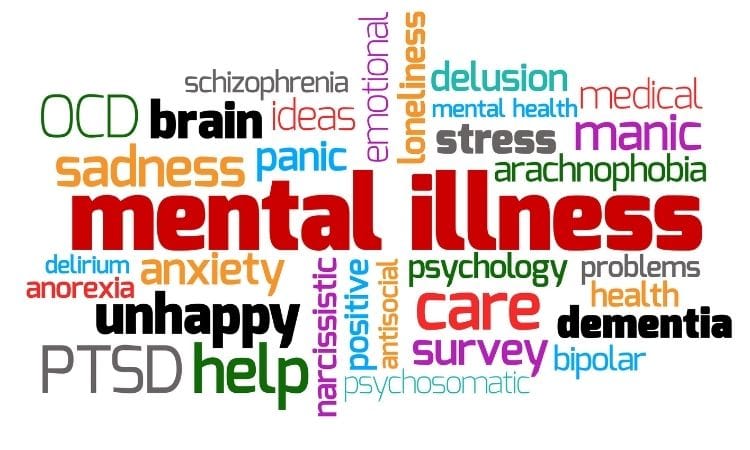Table Of Contents
There are several different types of eating disorders. Not all of them are commonly recognized even in these modern times.
Binge-eating disorder (BED), Anorexia nervosa (AN) and bulimia nervosa (BN) are some of the most clinically challenging, complex groups of mental health disorders.
These eating disorders have a level of severity and volatile nature to it’s mental illness. The paramount importance cannot be stressed enough as to the needed requirement of the professional and psychiatric support required for the recovery and healing process. The lack of that professional and psychiatric support can quickly spiral downward and result in various health issues and or death.
Having a timely diagnosis along with effective treatment interventions is crucial. It exceedingly improves the prognosis of this devastating and debilitating disease. Eating disorders require solid and proven effective treatment. These requirements must also guarantee access to both medical and psychiatric care simultaneously to help further ensure success.
Eating Disorder Treatments

Eating disorders have varying levels of care available to patients.
There are intensive outpatient or day treatments available for psychiatrically and medically stable patients. These options may be more suitable to their needs. Having an outpatient or day treatment option available allows them to have the flexibility to manage work, school and other appointments. This better suits their lifestyle needs and allows them to continue on with their daily functions with little to no interruption.
However, there are those who need more supervision. Those who require close medical and mental observation. Inpatient care is a suitable route for these people to take. With inpatient care, they become a temporary resident of which they can work with a team of healthcare professionals closely. This team of healthcare professionals consist of medical doctors, psychiatrist, psychiatric nurse practitioner, therapist, registered dieticians, including a case manager.
Treatment of Eating Disorders with Psychiatric Support
Simply just eating healthy is not the final solution of recovery from an eating disorder. However, many believe that is the answer. Eating disorders are complicated mental health illnesses that people suffer greatly from. It horrendously and unmercifully influences their perception of their own body image as well as their behaviors. There are not easy psychological things to alter. Changing these mental perceptions and behaviors through treatment of these disorders is dependent only through vigorous psychiatric support.
Coexisting conditions most often always hold back the eating disorder recovery process which is problematic and challenging in itself. This is why there is a need for comprehensive psychiatric treatment that helps to encourage and allows the patient to deal with the coexisting conditions, prior to treating the eating disorder itself.
In certain cases, inpatient psychiatric care is compulsory to stabilize the patient. The patient may be suffering with co-occurring mental health issues like major depression. Therefore, treatment of their major depression symptoms need to be treated prior to beginning eating disorder treatment. Otherwise, they will be unable to positively receive the full benefits of eating disorder treatment.
There are many complexities of common eating disorder behaviors. Any psychiatrist or psychiatric nurse practitioner who has been seasoned in the field will understand, and has knowledge through studies and experience, too.
There is a vast abundance of psychiatric symptoms that are consistent and common in patients with eating disorders. Depression, anxiety disorder, substance abuse disorders, obsessive-compulsive tendencies, suicidal thoughts and even self harm are just some of the shared common symptoms or disorders that are easily identifiable.
Eating Disorders Psychological Treatments
Although engaging with a licensed therapist is the most common psychological form of treatment for eating disorders, there are still various other treatments that do still exist. These treatments are constructed specifically and uniquely to help a patient understand several things. It helps them understand their relationships, thought processes, coping strategies and more. This helps them create changes in order to make everyday living and management of the disorder easier.
Here are a few of the main psychological treatments used today to help people with eating disorders:
- Family therapy: A licensed therapist who specializes in family therapy helps the patient come together with their family as a team. The goal is to help support the patient while receiving treatment and upon leaving treatment. Receiving family counseling can provide the patient with a better chance for llasting support.
- Cognitive behavioral therapy (CBT): Individualized therapy which teaches the patient healthier coping strategies, while recognizing their negative thoughts and beliefs.
- Interpersonal psychotherapy: Focusing through highly-structured and time-limited approach. Interpersonal issues are addressed and symptomatic recovery takes place.
- Psycho-dynamic psychotherapy: Diving deep and unraveling the subconscious and unconscious thoughts that ultimately influence our present behavior, this approach focuses on self-awareness. It is also known as insight-oriented therapy.
In certain cases, a patient can be extremely underweight. In anorexia nervosa you usually find that is typically the case. Recovery will usually start physically first. Once their body has physically healed, then psychological treatment will begin there afterwards. Once the body has recovered, then the mind will be in a better place to begin its journey to heal, focus and rebuild.
Medication’s Role Along with Psychiatric Support

With treating eating disorders they are several SSRI medications available that are FDA-approved pharmaceuticals. They help with symptoms of anxiety, depression, obsessive-compulsive disorder and PTSD which often co-occur with different types of eating disorders.
Close supervision of a psychiatrist or psychiatric nurse practitioner in incorporating medications can typically be beneficial to patients in their recovery journey. Especially when they are in an inpatient setting that’s controlled and monitored. Patients that are being guided carefully through dosages, disbursement and fully routinely checked over for side effects have typically experienced positive results and outcomes with medications and medication assisted treatment (MAT).
Recovery Prioritization
Treatment for eating disorders can increasingly improve a person’s overall quality of life through the provision of resources in order to help them with recovery. In some cases, receiving treatment can be detrimental in determining life or death depending on the duration and severity of their eating disorder. Even though the outcomes of eating disorder treatments are still difficult to fully conclusively determine, we know there is still a positive enough impact through receiving treatment that it is still producing positive results.
Counseling and therapy is key! It is vital and even at times crucial on your journey towards recovery. Changing old habits is tough, especially in the way we think. We can be our worst critic at times even. Persistence can be difficult. Especially as you implement and relearn better coping strategies along the way. There will be times where you will experience trial and error as you move forward. Having a licensed and trained counselor or therapist to help guide you is truly beneficial to help you stay focused and motivated. It also helps keep things in a positive perspective especially when you start to feel down on your difficult days.
Get Eating Disorder Treatments Today
Harmony Health Group provides a lifeline for those battling substance abuse and mental health issues, with rehab facilities located in Florida, Massachusetts, North Carolina, New Jersey, and Tennessee. In addition to addressing drug and alcohol dependency, we offer specialized programs for anxiety, depression, and other mental health conditions. Our commitment to accessibility is reflected in our acceptance of insurance from major providers such as Aetna, Cigna, Blue Cross Blue Shield, and United Healthcare. For those without insurance, we have flexible private pay options available to ensure that financial worries do not hinder your journey to recovery.
Our programs are designed to promote lasting recovery through a blend of evidence-based methods and personalized care. The dedicated team at Harmony Health Group is passionate about supporting each individual’s path to a healthier, more fulfilling life. Don’t let uncertainty keep you from seeking help—reach out to us today to explore the diverse treatment options available. Your road to wellness begins with a single step, and we are here to walk with you every step of the way.
Here at the Harmony Health Group, we are nationally recognized with all the proper accreditations and certifications. We also accept most insurances and we have safe, clean, accommodating, relaxing facilities that are affordable and recovery focused!
You can begin treatment today by beginning a conversation with an eating disorder specialist. All you have to do is take the first step, inquire and ask for help. You can begin by contacting us right here at Harmony Health Group today to get started.

